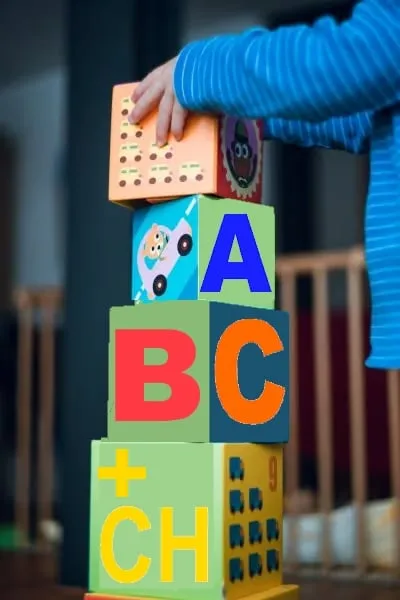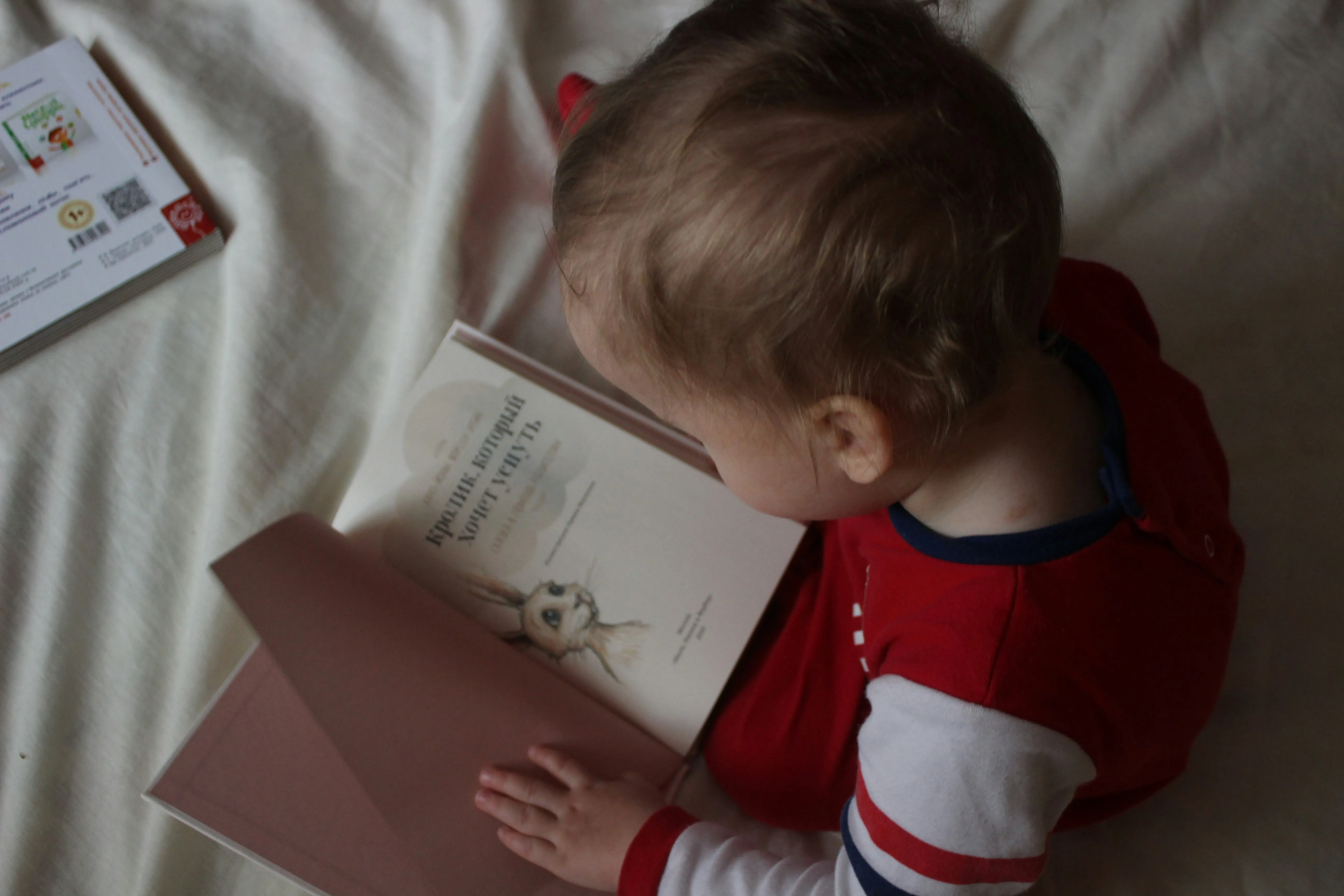Essential Insights: Cognitive Development in Early Childhood
Cognitive Development in Early Childhood: Essential Insights
As parents, we all want our children to reach their full potential, but did you know that cognitive development plays a crucial role in achieving this? Cognitive development refers to the skills and abilities a child develops as they grow, including memory, attention, problem-solving, and language. In this blog post, we dive deeper into the importance of cognitive development in early childhood and why it's essential to focus on it from an early age. We also look at the key stages of cognitive development and stepping stones that children reach in their first few years of life. Furthermore, we discuss activities and strategies that can foster cognitive development in young children and how early education and nutrition impact cognitive growth. Join us as we explore the fascinating world of cognitive development in early childhood.
Understanding the Importance of Cognitive Development in Early Childhood

Cognitive development in the initial years of a child’s growth forms the bedrock for future learning experiences and intellectual progression. These early formative years are crucial for enhancing problem-solving abilities and assimilating new concepts. The importance of cognitive skills in early childhood is also evident in activities like pretend play, as well as in understanding non-verbal cues such as facial expressions and gestures.
The Role of Cognitive Skills in a Child's Growth
In a child's development, cognitive skills like vocabulary understanding and facial expression recognition are crucial. Learning from experiences like pretend play contributes significantly to early cognitive development. Family interactions greatly influence cognitive stepping stones, with daily experiences also playing a pivotal role. Picture books and interactive activities stimulate cognitive growth during the child's formative years of age.
Why Early Focus on Cognitive Skills is Crucial
Early nurturing of cognitive skills is crucial for a child's future success in school. Caregivers play a significant role in fostering cognitive development during a child’s earliest years, shaping their growth in preschool and kindergarten. Problem-solving, imitation, and understanding new concepts are key aspects of cognitive learning in early childhood, affecting a child's overall development.
Key Stages of Cognitive Development in Early Childhood

During infancy and toddlerhood, cognitive development in early childhood commences, laying the foundation for future growth. The preschool years see a significant expansion in cognitive abilities, paving the way for enhanced problem-solving skills. Transitioning to schooling marks a crucial stage, where the child’s ability to comprehend complex concepts and engage in analytical thinking is further refined.
Infancy and Toddlerhood
During infancy, a child's cognitive development is evident in their recognition of family members and response to facial expressions. Toddlerhood involves cognitive stepping stones such as sorting and categorizing objects. Both infants and toddlers acquire cognitive skills through regular experiences that introduce them to new concepts, nurturing their problem-solving abilities and overall child development.
Preschool Stage
Preschoolers at this stage often partake in imaginative play, fostering their cognitive development. Their vocabulary expands, aiding in grasping new concepts and ideas. Piaget’s cognitive development theory is frequently evident during this phase, highlighting their cognitive progress. The preschool years mark a significant period of a child’s development, especially in their problem-solving skills and overall cognitive ability.
Transition to Schooling
Transitioning to formal schooling represents a pivotal cognitive leap in early childhood development. This phase involves honing problem-solving abilities and adapting to new learning environments. Children build their cognitive skills by comprehending and internalizing fresh concepts during their formative years in kindergarten, shaping their overall child development.
Identifying Cognitive Development Stepping Stones in Early Childhood

Emphasis on sequencing and order is crucial in a child’s development, while sorting and categorization skills also play a significant role. These stepping stones are indicative of the child’s ability to understand patterns, solve problems, and enhance cognitive growth during the early years of age.
Emphasis on Order and Sequencing
Emphasis on establishing order and sequencing is fundamental in child development. It fosters problem-solving abilities and the child's capability to grasp new concepts at an early age, laying the foundation for future learning. Sorting and categorization skills are pivotal cognitive stepping stones during early childhood, contributing significantly to the child’s ability to understand and process information effectively.
Sorting and Categorization Skills
The development of imagination and pretend play is a significant aspect of child development. The ability to sort and categorize objects lays the foundation for problem-solving skills. At two years of age, children start understanding categories, and by three years, they can sort items based on simple attributes. These skills are crucial developmental stepping stones that support a child’s ability to problem-solve and understand diverse concepts.
Development of Imagination and Pretend Play
Development of Imagination and Pretend Play:
Encouraging imaginative play nurtures a child's development, allowing them to explore diverse roles and scenarios. Imagination development in early childhood is fundamental for cognitive growth and problem-solving skills. As children engage in pretend play, they enhance their decision-making abilities, vital for their overall cognitive development.
Progress with Books and Literacy Skills
Exposure to picture books during early childhood stimulates a child's development, contributing significantly to cognitive growth. Early literacy experiences play a crucial role in enhancing a child’s cognitive skills. Reading activities in the early years contribute to a child’s cognitive development, emphasizing the importance of literacy skills and books in reaching developmental stepping stones.

Fostering Cognitive Development: Activities and Strategies
In early childhood, promoting child development through activities and strategies is crucial. Regular problem-solving experiences support cognitive growth, while new learning experiences contribute to intellectual development. Positive interactions with family members also play a significant role in fostering cognitive development during the formative years of a child’s ability. Engaging in cognitive learning influences intellectual development, making it essential to promote cognitive skills during the preschool years.
Incorporating Playful Learning - Blocks, Puzzles, Role Plays
Engaging in puzzles and blocks fosters child development. Role plays in early years support cognitive skills. Interactive play enhances cognitive growth in early childhood. Playful learning significantly influences cognitive development in preschoolers. Engagement in role plays and puzzles contributes to cognitive development stepping stones.
Integrating Cognitive Development into Daily Routines
Embedding cognitive development in childcare into everyday routines is crucial. Such routines provide abundant opportunities for the enhancement of cognitive skills in early childhood. Daily experiences and interactions create a significant impact on the cognitive development of preschoolers. Consistent learning through daily experiences plays a vital role in fostering cognitive development during early childhood.
The Role of Nursery Rhymes and Songs
Engaging in songs, nursery rhymes, and daily routines influences cognitive growth in young children, fostering developmental stepping stones. Exposure to these activities is vital for a child's ability to problem solve, develop imagination, and progress with literacy skills. Singing nursery rhymes with caregivers supports cognitive development, enhancing a child's years of age.

The Impact of Early Education on Cognitive Development
Early education programs significantly influence cognitive development in young children. Preschool activities and kindergarten experiences play a crucial role in shaping cognitive growth and developmental stepping stones. These formative years, from infancy through preschool, are vital for the child’s development in areas such as problem-solving and the ability to learn at an early age.
The Influence of School Activities on Cognitive Growth
The early years' school activities significantly impact cognitive development, fostering vocabulary in childcare and preschoolers. Regular participation in school activities facilitates problem-solving skills, contributing to developmental stepping stones. Kindergarten experiences play a crucial role in enhancing a child’s ability, ensuring a well-rounded development in various areas.

How does Nutrition Influence Cognitive Development in Early Childhood?
Proper nutrition is crucial for cognitive development in early childhood. It plays a vital role in supporting cognitive growth and development during these formative years. Nutritional intake significantly impacts cognitive development stepping stones, making healthy eating habits essential for young children's cognitive development. Good nutrition positively influences cognitive development in early childhood.

FREQUENTLY ASKED QUESTIONS
What is cognitive development, and why is it important?
Cognitive development, the growth of mental abilities, is vital for a child's success. It encompasses problem-solving, memory, attention, and language skills. This development is especially crucial in early childhood. Parents and caregivers should create a stimulating environment to promote cognitive growth.
What is cognitive development in early childhood?
Cognitive development in early childhood refers to the process of acquiring and improving thinking, problem-solving, and memory skills. It involves language development, spatial awareness, and understanding cause-and-effect relationships. Play-based learning activities, along with a stimulating environment, can aid in promoting cognitive development.
Why is cognitive development important for a child?
Cognitive development plays a vital role in a child's overall growth and learning. It helps them develop problem-solving, critical thinking, and reasoning skills. Additionally, cognitive development enables children to understand language, emotions, and social cues. Nurturing cognitive skills in early childhood can lead to better academic performance later in life.
Are there any activities or games that can enhance cognitive development in young children?
Engaging in activities and games can greatly enhance cognitive development in young children. Encourage reading to improve language and cognitive skills. Engage in memory games, puzzles, and problem-solving activities to develop critical thinking. Foster creativity and cognitive flexibility through imaginative play. Outdoor activities like playing with balls, riding bikes, and climbing can improve motor skills and cognitive development.
How does reading to a newborn help cognitive development?
Reading to a newborn is crucial for cognitive development. It helps develop language skills, introduces new words and concepts, and stimulates brain development. Additionally, it builds a bond between the parent and child, promoting emotional development. Regular reading sets the foundation for a lifelong love of learning. Aim for 15 minutes per day, every day!

Conclusion
In conclusion, cognitive development in early childhood sets the foundation for a child's future learning and success. It is crucial to understand the importance of cognitive skills and provide opportunities for their growth. From infancy to preschool stage and transition to schooling, each stage brings unique stepping stones in cognitive development, such as order and sequencing, sorting and categorization, imagination and pretend play, and progress with books and literacy skills.
To foster cognitive development, incorporating playful learning activities like blocks, puzzles, and role plays is essential. Integrating cognitive development into daily routines and using nursery rhymes and songs also aids in this process. Early education plays a significant role in cognitive growth, as school activities influence cognitive development.
Reading aloud is one of the most effective methods of increasing literacy, developing cognitive growth, and accelerating language skills before schooling begins.
Moreover, nutrition plays a vital role in cognitive development, and providing a balanced diet rich in essential nutrients supports optimal brain function. By nurturing cognitive development in early childhood, we can help children reach their full potential and lay the groundwork for lifelong learning and success.


Thanks for Reading!
-SHiNER The Human and the Team of AIs





































































































































